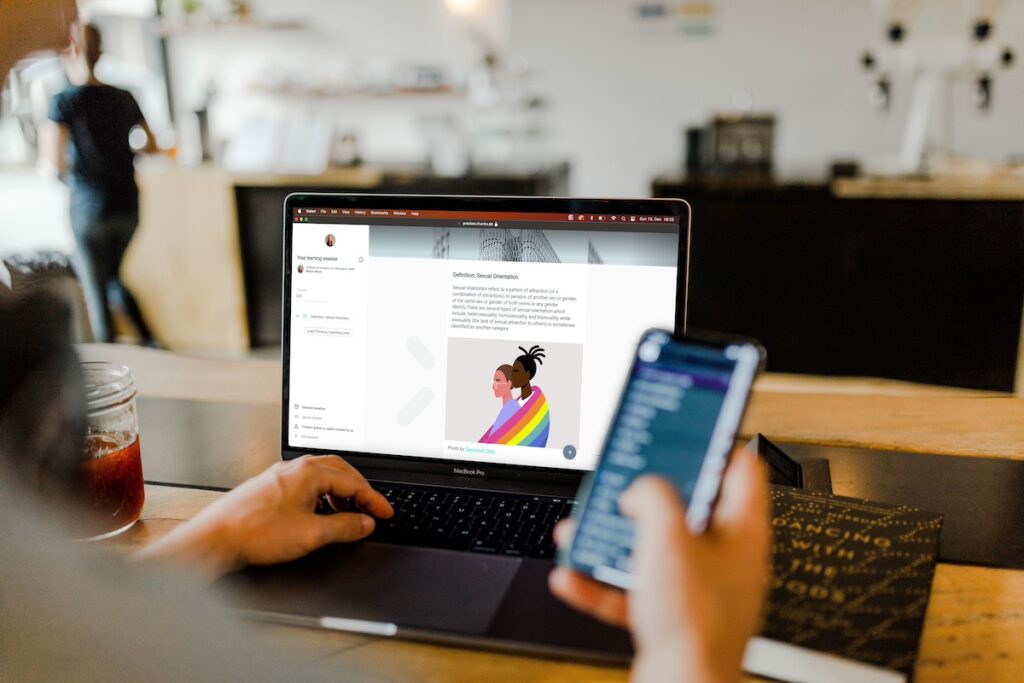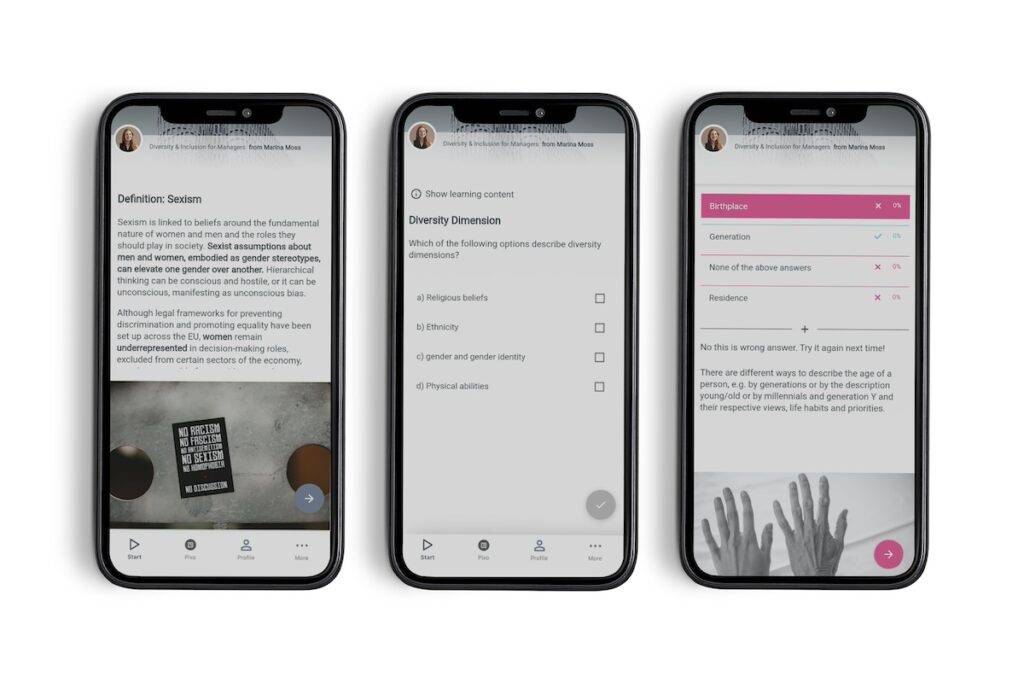Inclusive leadership - changing values in the hotel industry through an interactive leadership program with continuous learning transfer
1. changing values in the hotel industry
The hotel industry is a dynamic and multifaceted sector that is increasingly characterized by change – be it globalization, digitalization or artificial intelligence. Employees and travelers come together from different cultures and backgrounds. As a result, the establishment of Diversity, Equity, Inclusion, and Belonging (DEIB) plays a decisive role in the success and innovative strength of hotels.
This change goes far beyond superficial changes and influences the way hotels operate. It influences how managers lead their teams and offer services. This change not only has a lasting impact on corporate culture, but also on the guest experience.
2. challenges in the hotel industry
This profound change in values presents hotels with the challenge of attracting, retaining and promoting new talent.
While there has already been positive progress in establishing inclusive environments, there are still areas that require attention. For example, the hotel industry faces challenges such as
- Underrepresentation in management positions,
- unequal and unfair opportunities for advancement,
- lack of cultural competence,
- Discrimination in the workplace,
- Resistance to change,
- Lack of data and metrics,
- global differences in diversity practices,
- and high fluctuation rates.
Overcoming these challenges requires a comprehensive and continuous commitment from senior management, combined with strategies that promote equality and inclusivity at all levels of the organization.

3. opportunities through the establishment of an inclusive management culture
Inclusive leadership is also crucial in the hotel industry in order to promote a positive workplace culture, increase employee engagement and ultimately improve the guest experience. Inclusive leadership means involving employees and communicating appreciation.
This achieves the following:
- Increasing the commitment of the workforce
- Greater customer satisfaction, innovation and creativity
- Higher employee retention and loyalty
- Better adaptability to global markets
- Greater attractiveness as an employer
- Fewer conflicts in the workplace
- Legal and ethical compliance
- Positive brand image
- Improved employee well-being.

Inclusive management in the hotel industry is not only a question of social responsibility, but also a strategic necessity for competitiveness.
In order to create an inclusive and equitable working environment, it is essential to address and break down stereotypes. This includes questioning and overcoming preconceived ideas and prejudices about certain groups of people based on characteristics such as gender, ethnicity or socio-economic status.
Implementing effective training and DEI practices requires ongoing commitment, education and a willingness to adapt to the changing needs of employees and guests.

4. sustainable development for managers of an international hotel chain
vaunda Unternehmensberatung designed a learning landscape on inclusive leadership for the managers of an international hotel chain. The focus was on 120 managers in Germany.
The hotel chain, with over 800 hotels and more than 35,000 employees in the UK, Ireland and Germany, as well as in the United Arab Emirates and elsewhere, already had an existing training program. The focus there was on general management topics that were taught to managers. Comprehensive diversity and inclusion training was not yet part of the program. There was therefore a need for additional training opportunities.
Conventional training programs and formats alone are often not enough to bring about a lasting change in behavior, especially when it comes to deeply rooted convictions. Time is often at a premium, especially at management level. A training course lasting several hours can therefore be too time-consuming. In addition, for the best possible learning success, the topic should not just be dealt with once, but should be a constant presence in everyday working life.

5. leadership development - learning journey with continuous learning modules
In addition to the existing training program, the aim was to create a learning journey that sensitizes and educates managers on the topic of diversity and inclusion and encourages them to reflect on their role as inclusive managers in the long term.
The vaunda management consultancy designed a 12-month learning journey that included the following modules:
- Live workshops
- Event formats
- Personal coaching sessions
- Assessments
- Digital learning modules in chunkx
With a learning path in chunkx, the goal of an adaptive and continuous learning experience was achieved through micro-learning follow-ups, personal AI-based summaries and author contributions by Cathérine Ngoli (consultant vaunda management consultancy and chunkx author).
This combination creates an individual learning experience that helps to firmly anchor learned knowledge through adaptive follow-ups.
A future-oriented and holistic blended learning approach was developed with the on-site workshops by vaunda Unternehmensberatung.
This learning journey teaches different concepts and strategies about diversity and inclusive leadership, provides space to reflect on stereotypes and prejudices, learn strategies on how to counteract these prejudices, and recommendations for action in everyday professional life to create an inclusive corporate culture with an equitable and inclusive work environment.
This approach not only not only imparts theoretical knowledge, but also the acquisition of practical skills that can be actively applied in everyday applied be can.
6. continuous learning as a recipe for success for D&I change
Continuous learning experiences in the area of Diversity, Equity, Inclusion & Belonging (DEIB) are essential for any company that wants to benefit from a diverse and multi-layered team. Building a team with diverse backgrounds has a direct impact on the working atmosphere and the efficiency of the entire organization. A study by MCKinsey&Company shows that companies with a diverse leadership team are 33% more likely to outperform their competitors in terms of profitability.
It is clear that DEIB is not only a matter of ethos, but also a crucial factor for the economic success of a company. Therefore, it is of utmost importance to promote and integrate continuous learning experiences in this area to ensure the long-term success and relevance of a company.

Would you like to find out more about chunkx?
Write to us and make an appointment so that we can discuss all the options and questions with you.




